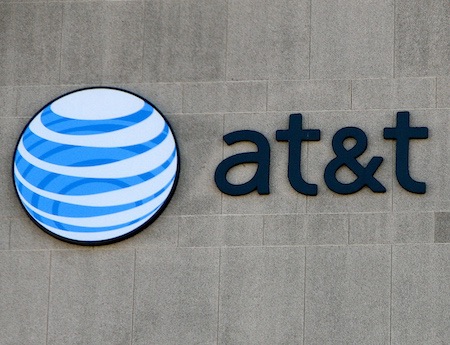AT&T: FCC E-Rate NAL Is Rulemaking By Enforcement

The smarter way to stay on top of broadcasting and cable industry. Sign up below
You are now subscribed
Your newsletter sign-up was successful
AT&T says the FCC got it all wrong when it alleged the telecom had violated the requirement that it did not charge schools, libraries and consortia the lowest rate it charged similarly situated nonresident customers.
AT&T said the FCC's application of the lowest corresponding price requirement for the E-rate program, which subsidized broadband buildouts to those anchor institutions was "factually wrong."
While the Enforcement Bureau alleged that the company should have provided school districts at issue rates based on one-year contracts, the schools were in fact buying the service on a month-to-month basis. The issue is similar to the lowest unit rate broadcasters have to charge for political ads, where last-minute political ad buys are more expensive than the same spots and dayparts bought in advance.
"Contract term is a regular and routine distinction in rates, and the Commission has previously expressed the view that length of contract is a valid basis to price services differently among customers," said AT&T.
AT&T also says the FCC was wrong in suggesting AT&T should have provided the schools the rates it charges consortia, when the FCC itself has said that such consortia allow for better rates than the individual entities could get on their own.
AT&T also says the notice of apparent liability (NAL) came after the statute of limitations had expired, so it fails on procedural grounds even before it fails on substantive ones.
AT&T called the Enforcement Bureau notice of apparent liability (issued July 27), another troubling example of rulemaking through enforcement.
The smarter way to stay on top of broadcasting and cable industry. Sign up below
For an example, AT&T cited the its alleged violation of the 2010 Open Internet rule on transparency. "In that case, the Bureau disavowed the Commission’s own prior statements in order to find a legal theory on which it could frame a theory of liability. AT&T’s response detailed how the NAL was contrary to the most basic principles of fairness, due process and responsible enforcement."
AT&T has all along maintained the FCC was off base and it was ready to prove it, but it filed its official response to the complaint Friday (Aug. 26).
“Charging school districts among the highest rates in the state for telephone or broadband internet service is outrageous,” said Enforcement Bureau Chief Travis LeBlanc said back in July when announcing the NAL. “Schools and libraries across the country heavily rely upon federal and state funds to afford these critical services. We expect that every service provider will offer participating schools and libraries the same low rates that they charge to other similarly situated customers.”
"The NAL should never have been issued...and there is no legal or factual basis for liability against AT&T," the company said.
(Photo via Bill Bradford's Flickr. Image taken on March 4, 2016 and used per Creative Commons 2.0 license. The photo was cropped to fit 3x4 aspect ratio.)
Contributing editor John Eggerton has been an editor and/or writer on media regulation, legislation and policy for over four decades, including covering the FCC, FTC, Congress, the major media trade associations, and the federal courts. In addition to Multichannel News and Broadcasting + Cable, his work has appeared in Radio World, TV Technology, TV Fax, This Week in Consumer Electronics, Variety and the Encyclopedia Britannica.

